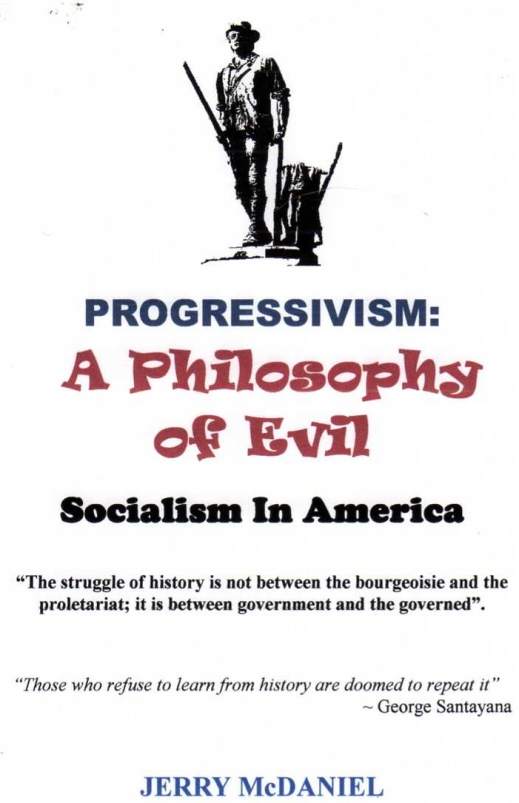 America, like all nations of the world is tripartite in its makeup. Socialists seem to recognize this as a natural fact. Most conservatives do not. That could prove to be our undoing in the struggle to take our nation back from the Democrat-RINO (DR) coalition that runs the federal government. As Obama and his socialist backers continue to dismantle the institutions of government, conservatives grow increasingly disgusted with the Republican leadership in Congress. The danger for 2012 is that the DR coalition will succeed in alienating the patriot movement from the Republican Party to the point that conservatives vote for someone other than the Republican Party candidate in next year’s election.
America, like all nations of the world is tripartite in its makeup. Socialists seem to recognize this as a natural fact. Most conservatives do not. That could prove to be our undoing in the struggle to take our nation back from the Democrat-RINO (DR) coalition that runs the federal government. As Obama and his socialist backers continue to dismantle the institutions of government, conservatives grow increasingly disgusted with the Republican leadership in Congress. The danger for 2012 is that the DR coalition will succeed in alienating the patriot movement from the Republican Party to the point that conservatives vote for someone other than the Republican Party candidate in next year’s election.
A more immediate danger, however, is that patriots fail to unite behind a single candidate in the primaries resulting in the establishment candidate winning the Republican nomination. If that happens, enough conservatives could cast votes for a third party candidate or simply sit out the election, to return Obama and the DR coalition to Washington in 2013. November of 2012 marks the outer limits of the “point of no return” for America, as we know it, if we have not already reached that point before then. That is why it is imperative that we nominate three-dimensional conservatives for national, state and local offices whenever possible.
All civil societies are tripartite or three-dimensional by nature. The three parts comprising the essence of civil societies are its culture, its government, and its economy, all arrived at by the subliminal consensus of the people making up that society. In the sequence of development, the culture is first to be formed. From that, the economic and government systems develop. Throughout history, cultures have always been strongly influenced by man’s innate awareness of a supreme being. The predominant element in a society’s culture is the dominant religion practiced by the majority of its members. The economic structure and the organization of government always reflect the religious principles of its culture.
The old America that worked, with a culture based on Judeo-Christian principles, an economy based on the Lockean concept of private property, and a government based on a written constitution, has been deliberately and methodically dismantled over the past several generations and is in the process of being replaced with an American version of Marxist socialism that has failed in every place it has been tried the world over. In spite of this fact, a sizable number of conservatives continue to view our problems from a one-dimensional perspective. Libertarians for example, place their emphasis on the Constitution to the exclusion of cultural considerations. Many fiscal conservatives focus on taxes and spending while criticizing social conservatives for their insistence on preserving the moral basis of our culture.
We have watched for many years as progressives (American socialists) have used a dubious reading of the Constitution and the Chinese Communist concept of “political correctness” to undermine the most important of our cultural institutions: schools, families, churches and charitable institutions. These attacks on the American culture take the form of abortion on demand, the elimination of God from our public forums, the welfare state replacing the role of fathers in many households of the poor, and traditional gender relationships in marriage being looked on as “narrow minded” and bigoted. We have seen the complete breakdown of the traditional cultural values in our sports and entertainment, in our business relationships, and in our political institutions. And for those with “eyes to see” the results are only too evident.
When the culture breaks down, government effectiveness and fiscal stability also breaks down. On the final day of the Philadelphia Convention, Benjamin Franklin expressed his support for the Constitution with the warning that it “can only end in Despotism, as other forms have done before it, when the people shall become so corrupted as to need despotic Government, being incapable of any other.” While we may not be at that point yet, if we continue to ignore cultural issues, it is only a matter of time until private and public corruption reaches the stage that it can only be controlled by despotic means. That is one of the major lessons we learn from history. Once a society loses its cultural foundation, anarchy emerges, and eventually reaches the level where the populace will accept, and even welcome tyranny as the only means of personal security.
No society can prosper without objective standards of conduct for its government, culture and economy. The objective standard of conduct for the government of America is the Constitution, which is no longer given even “lip service” by our national leaders. The President and Congress routinely violate the restrictions of the Constitution with impunity; the courts apply its requirements based on populist’s trends rather than impartial law. The foundation of the American culture is rooted in the Judeo-Christian principles found in the Holy Bible. An increasingly oppressive attitude toward Christian principles has existed in America since about 1960 and the Bible, prayer, and Christian symbols have been all but eliminated from the public institutions of our culture. Our capitalist economic system based on private ownership and management of property has been undermined by “crony capitalism” and central planning through the government regulatory system as we transition from a free market economy to a centrally planned socialist one.
The Ron Paul type of libertarianism and a fiscal conservatism that ignores the corruption of our culture is simply not adequate to meet the problems facing us as a nation today. We only need look at the state of California, the “hooligan” riots last week in England, or the “flash mobs” that have sprung up in American cities the past few weeks to see our future if we continue to ignore the cultural corruption that has become rampant in recent years. While the federal government has no constitutional authority over the nation’s culture, we cannot afford to support candidates for national office who refuse to champion publicly the traditional American moral values or who, in some cases, openly undermine them.
Many well meaning constitutional conservatives rightly point out that social issues such as abortion, gay marriage, and a host of others are reserved by the Tenth Amendment to the states and to the people; if you listen closely to their arguments for “states rights”, it is easy to conclude that they confuse morality with legality. Immorality sanctioned by state law is no less immoral than that sanctioned by federal law. That is why in deciding on candidates in the 2012 elections we cannot settle for one-dimensional or two-dimensional conservatives. We must insist they be constitution conservatives, fiscal conservatives, AND cultural conservatives. Anything less and we are wasting our time and only postponing the certain end to America “as we know it”.








Choosing the Right Candidate
There are only two issues in the next election, one for the people and one for the candidates. The one for the people is; do we wish to continue as a constitutional republic or as a democratic socialist oligarchy? The answer to that question determines the question we must get a clear answer to before we decide to support any candidate in the coming elections. If the answer is that we want to continue as a constitutional republic, then the only thing we need to know about the candidate is; will he or she fight for our founding principles and defend our founding documents?
This is not something about which we have to speculate. We have over four hundred years of history as our guide; 169 years of colonialism under a monarchy, 5 years as independent nation states, 8 years as a confederation of sovereign states, and 222 years as a constitutional republic, including some 130 years of experimenting with socialism. The one lesson we should have learned from our own history as well as the history of other nations of the world is that socialism does not work. Yet, in spite of the clear evidence that it does not, our political leaders continue to attempt to force in on an inadequately informed population.
The number one challenge facing the patriot movement today is a lack of knowledge among the voting public concerning our history, our Constitution and our American heritage. America has become a nation addicted to big government socialism. In order to cure any addiction one first has to recognize it and admit that it is a problem and have a real desire to break the habit.
Illinois Conservative.Com has published a new book, “Philosophy of Evil” especially for Tea Party Members and other patriots to help in understanding who we are as a people, where we are today as a nation and how we got here. It is the result of years of study and months of intensive research in American history and the history of socialism, especially as it took root and grew in American society. Philosophy of Evil traces the history of socialism in America from the early experiments with it in colonial times, through the utopian commune movement, the progressive era and its rapid growth in the twentieth century, culminating in the economic, political and social crises we are experiencing today.
We invite our readers to go to our website, check out the subject index and read the sample chapters we have posted there. We believe an understanding of the information found in this book is essential to the restoration of America as a constitutional republic. As Thomas Jefferson said concerning his writing of the Declaration of Independence,
Share this:
1 Comment
Posted in 2012 election, Barack Obama, bill of rights, christianity, Commentary on Government Powers, Congress, Constitution, economy, Electoral College, enumerated powers, founding fathers, history, Politics, progressives, scope of government, Socialism, supreme court, Third Parties
Tagged Barack Obama, congress, conservatism, electoral college, enumerated powers, federalists, founding fathers, government, karl marx, liberty, Politics, republican party, Socialism, supreme court, Taxes, tea parties, Tenth Amendment, Thomas Jefferson, tyranny